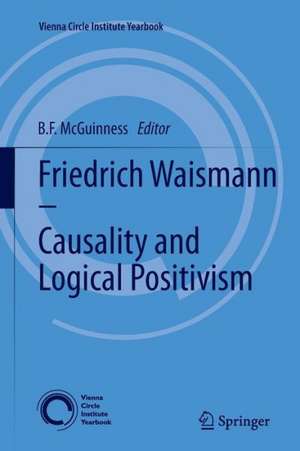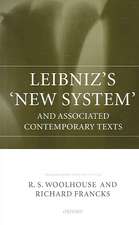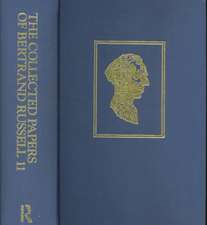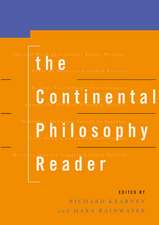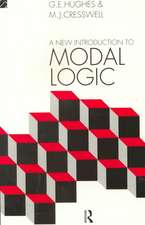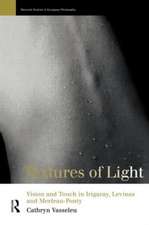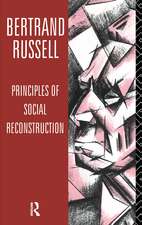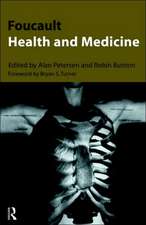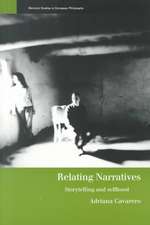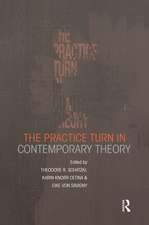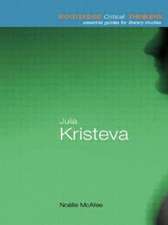Friedrich Waismann - Causality and Logical Positivism: Vienna Circle Institute Yearbook, cartea 15
Editat de B.F. McGuinnessen Limba Engleză Paperback – 3 aug 2013
| Toate formatele și edițiile | Preț | Express |
|---|---|---|
| Paperback (1) | 948.16 lei 6-8 săpt. | |
| SPRINGER NETHERLANDS – 3 aug 2013 | 948.16 lei 6-8 săpt. | |
| Hardback (1) | 952.09 lei 6-8 săpt. | |
| SPRINGER NETHERLANDS – 7 iun 2011 | 952.09 lei 6-8 săpt. |
Din seria Vienna Circle Institute Yearbook
- 24%
 Preț: 797.66 lei
Preț: 797.66 lei - 18%
 Preț: 964.86 lei
Preț: 964.86 lei - 18%
 Preț: 954.93 lei
Preț: 954.93 lei - 15%
 Preț: 645.47 lei
Preț: 645.47 lei - 15%
 Preț: 644.30 lei
Preț: 644.30 lei - 15%
 Preț: 641.85 lei
Preț: 641.85 lei - 15%
 Preț: 636.30 lei
Preț: 636.30 lei - 15%
 Preț: 652.49 lei
Preț: 652.49 lei - 15%
 Preț: 647.59 lei
Preț: 647.59 lei - 15%
 Preț: 644.63 lei
Preț: 644.63 lei - 18%
 Preț: 953.82 lei
Preț: 953.82 lei - 15%
 Preț: 583.78 lei
Preț: 583.78 lei - 18%
 Preț: 736.16 lei
Preț: 736.16 lei - 18%
 Preț: 1027.20 lei
Preț: 1027.20 lei -
 Preț: 383.71 lei
Preț: 383.71 lei - 18%
 Preț: 788.41 lei
Preț: 788.41 lei - 18%
 Preț: 944.51 lei
Preț: 944.51 lei - 18%
 Preț: 725.43 lei
Preț: 725.43 lei - 18%
 Preț: 950.96 lei
Preț: 950.96 lei - 24%
 Preț: 760.12 lei
Preț: 760.12 lei - 15%
 Preț: 705.51 lei
Preț: 705.51 lei - 18%
 Preț: 954.14 lei
Preț: 954.14 lei - 18%
 Preț: 1391.97 lei
Preț: 1391.97 lei - 18%
 Preț: 959.19 lei
Preț: 959.19 lei - 18%
 Preț: 954.77 lei
Preț: 954.77 lei - 18%
 Preț: 955.40 lei
Preț: 955.40 lei - 18%
 Preț: 954.93 lei
Preț: 954.93 lei
Preț: 948.16 lei
Preț vechi: 1156.29 lei
-18% Nou
Puncte Express: 1422
Preț estimativ în valută:
181.43€ • 189.43$ • 150.16£
181.43€ • 189.43$ • 150.16£
Carte tipărită la comandă
Livrare economică 05-19 aprilie
Preluare comenzi: 021 569.72.76
Specificații
ISBN-13: 9789400736429
ISBN-10: 9400736428
Pagini: 372
Ilustrații: 372 p.
Dimensiuni: 155 x 235 x 20 mm
Greutate: 0.52 kg
Ediția:2011
Editura: SPRINGER NETHERLANDS
Colecția Springer
Seria Vienna Circle Institute Yearbook
Locul publicării:Dordrecht, Netherlands
ISBN-10: 9400736428
Pagini: 372
Ilustrații: 372 p.
Dimensiuni: 155 x 235 x 20 mm
Greutate: 0.52 kg
Ediția:2011
Editura: SPRINGER NETHERLANDS
Colecția Springer
Seria Vienna Circle Institute Yearbook
Locul publicării:Dordrecht, Netherlands
Public țintă
ResearchCuprins
Friedrich Waismann:
The Decline and Fall of Causality,-A Philosopher Looks at Kafka,- Causality,-The Logical Force of Expressions,- Tributes and Impressions,-
Mathieu Marion Waismann’s Lectures on Causality: An Introduction,-Alexander Bird Waismann Versus Ewing on Causality,- Brian McGuinness Waismann: the Wandering Scholar,-Joachim Schulte Waismann as Spokesman for Wittgenstein,-Juha Manninen Waismann’s Testimony of Wittgenstein’s Fresh Starts in 1931–35,- Wolfgang Kienzler Waismann‘s Conception of Philosophy,- Michael Heidelberger Waismann on Causality and Probability
General Part:
Report – Documentation:
Hadwig Kraeutler/ Corinna Oesch/ Günther Sandner
Otto Neurath’s ‘Encyclopedia of the World War’: A Contextualisation, -Christoph Limbeck-Lilienau Logical Syntax and the Application of Mathematics
Reviews
Obituary: Stephen Toulmin,- Activities of the InstituteVienna Circle.
The Decline and Fall of Causality,-A Philosopher Looks at Kafka,- Causality,-The Logical Force of Expressions,- Tributes and Impressions,-
Mathieu Marion Waismann’s Lectures on Causality: An Introduction,-Alexander Bird Waismann Versus Ewing on Causality,- Brian McGuinness Waismann: the Wandering Scholar,-Joachim Schulte Waismann as Spokesman for Wittgenstein,-Juha Manninen Waismann’s Testimony of Wittgenstein’s Fresh Starts in 1931–35,- Wolfgang Kienzler Waismann‘s Conception of Philosophy,- Michael Heidelberger Waismann on Causality and Probability
General Part:
Report – Documentation:
Hadwig Kraeutler/ Corinna Oesch/ Günther Sandner
Otto Neurath’s ‘Encyclopedia of the World War’: A Contextualisation, -Christoph Limbeck-Lilienau Logical Syntax and the Application of Mathematics
Reviews
Obituary: Stephen Toulmin,- Activities of the InstituteVienna Circle.
Textul de pe ultima copertă
Friedrich Waismann (1896–1959) was one of the most gifted students and collaborators of
Moritz Schlick. Accepted as a discussion partner by Wittgenstein from 1927 on, he functioned
as spokesman for the latter’s ideas in the Schlick Circle, until Wittgenstein’s contact
with this most faithful interpreter was broken off in 1935 and not renewed when exile took
Waismann to Cambridge. Nonetheless, at Oxford, where he went in 1939, and eventually
became Reader in Philosophy of Mathematics (changing later to Philosophy of Science),
Waismann made important and independent contributions to analytic philosophy and philosophy
of science (for example in relation to probability, causality and linguistic analysis).
The full extent of these only became evident later when the larger (unpublished) part of his
writings could be studied. His first posthumous work The Principles of Linguistic Philosophy
(1965, 2nd edn.1997; German 1976) and his earlier Einführung in das mathematische
Denken (1936) have recently proved of fresh interest to the scientific community. This late
flowering and new understanding of Waismann’s position is connected with the fact that he
somewhat unfairly fell under the shadow of Wittgenstein, his mentor and predecessor.
Central to this book about a life and work familiar to few is unpublished
and unknown works on causality and probability. These are commented on in
this volume, which will also include a publication of new or previously scattered
material and an overview of Waismann’s life.
Moritz Schlick. Accepted as a discussion partner by Wittgenstein from 1927 on, he functioned
as spokesman for the latter’s ideas in the Schlick Circle, until Wittgenstein’s contact
with this most faithful interpreter was broken off in 1935 and not renewed when exile took
Waismann to Cambridge. Nonetheless, at Oxford, where he went in 1939, and eventually
became Reader in Philosophy of Mathematics (changing later to Philosophy of Science),
Waismann made important and independent contributions to analytic philosophy and philosophy
of science (for example in relation to probability, causality and linguistic analysis).
The full extent of these only became evident later when the larger (unpublished) part of his
writings could be studied. His first posthumous work The Principles of Linguistic Philosophy
(1965, 2nd edn.1997; German 1976) and his earlier Einführung in das mathematische
Denken (1936) have recently proved of fresh interest to the scientific community. This late
flowering and new understanding of Waismann’s position is connected with the fact that he
somewhat unfairly fell under the shadow of Wittgenstein, his mentor and predecessor.
Central to this book about a life and work familiar to few is unpublished
and unknown works on causality and probability. These are commented on in
this volume, which will also include a publication of new or previously scattered
material and an overview of Waismann’s life.
Caracteristici
A new understanding of Waismann's position in philosophy Sheds light on Waismannn's independent and inventive contributions to philosophy apart from his temporary function as Wittgenstein's spokesman Includes a publication of new or previously scattered material
